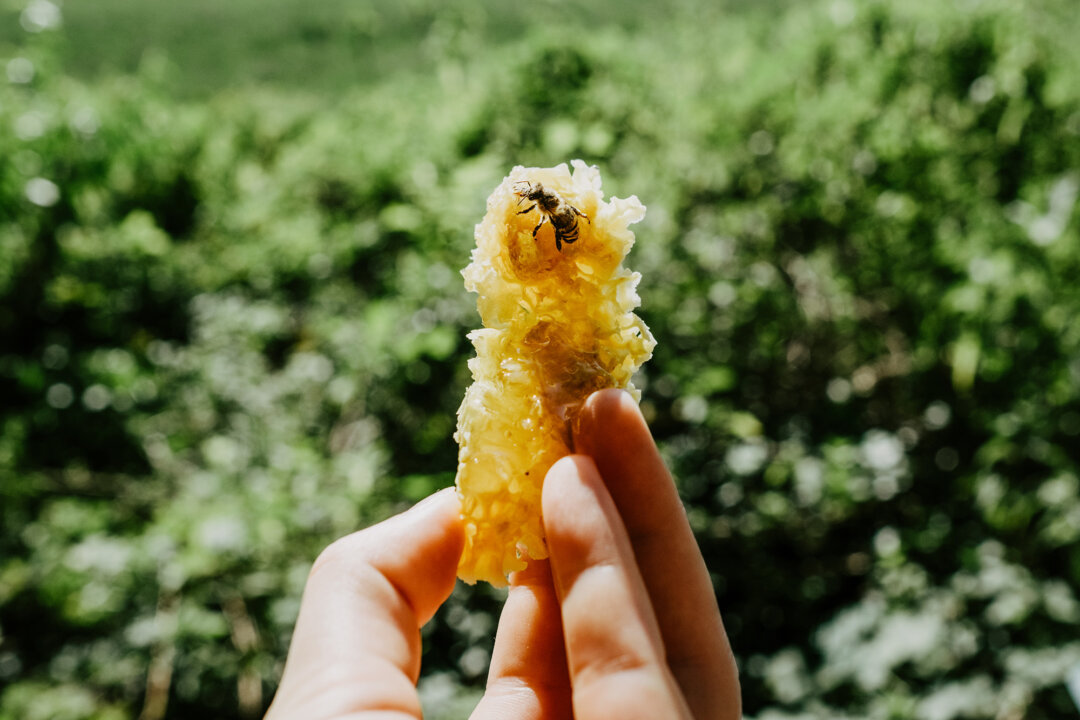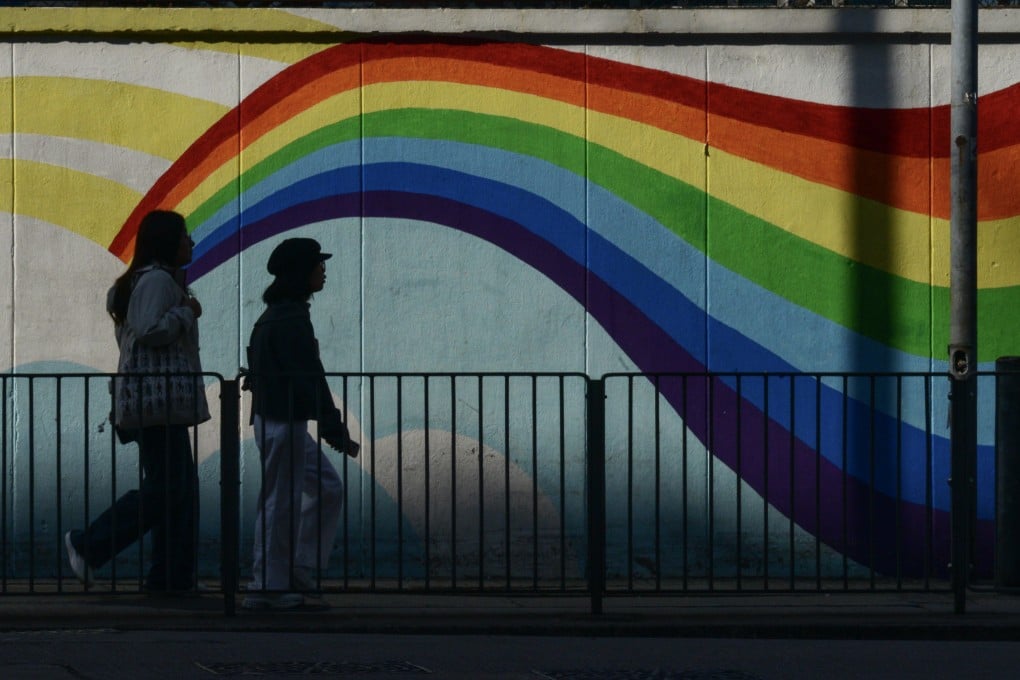Bees are dying—and at an alarming rate. Bees pollinate three-quarters of the fruits, vegetables, and nuts we eat, and many of us rely on bee products for their nutrition and health-promoting gifts. If bees vanish, it’s scary to think of all we stand to lose.
And some say that if the bees go, we go too. Jeff Pettis, president of Apimondia—The International Federation of Beekeepers’ Associations—sums up the health benefits that bees offer humans in one word: huge. Although two-thirds of our diet comes from carbohydrates—crops like rice, wheat, and corn—which are pollinated by wind rather than insects, many other important foods require bees.

“The biggest one, obviously, for beekeepers, is almonds. And then you have things like blueberries, watermelons, and stuff you don’t think about, like onions and carrots—all require pollination. There’s an estimated 100 crops that require pollination,” he told the Epoch Times.
Throughout history, honey has played many roles—it was used in religious rituals, medicine, currency, and offerings to the gods. When archaeologists uncovered King Tutankhamun’s tomb, they found a sealed jar of honey more than 2,000 years old. Because honey doesn’t spoil, it was still safe to eat.
Jana Schmidt is a board-certified naturopathic doctor and master herbalist who keeps bees. She says not all honey is created equal, and knowing where your honey comes from is crucial, as many store-bought varieties are synthetically made or artificial. If you want the good stuff, go for raw, local honey—ideally straight from a beekeeper.
“Darker varieties have higher antioxidants than the lighter varieties,” she noted, saying bees make the darker types in the winter months when it’s cold, and they need more nutrition—which is passed to us when we eat it. She says that honey added to tea before bed can help you sleep—something she did for her children when they were little. “It helps regulate your sleep, but it also protects the teeth from the bacteria that causes cavities, which seems crazy because it’s sweet.
You think, oh, that’s going to cause cavities, but actually, it protects the teeth,” she told The Epoch Times. Bee pollen offers a source of sustained energy throughout the day and not a spike like you might get from sugar or caffeine, she said. “I don’t drink coffee or anything like that.
I just take my bee pollen in the morning, and I’m good to go,” she beamed. There is growing scientific interest in bee pollen, particularly because of its antimicrobial properties, which can fight a wide variety of pathogens, including bacteria and fungi. This ability is notable because some bacteria are becoming resistant to antibiotics.
Bee pollen (beebread) seems able to fight microbes without creating resistance, which some scientists believe is because it contains several different natural compounds that work synergistically. Bee pollen also supports the body’s good bacteria, benefiting healthy gut microbes—behaving like a prebiotic. Schmidt adds that as a natural fertility specialist, bee pollen is her number one fertility supplement.
“If you think about it, it’s the fertility for the plants. Why wouldn’t it be fertility for us, too? So sometimes that’s all it takes. The couple start taking bee pollen, and bam, they’re fertile.
So that’s been pretty fun to be a part of.” Benefiting metabolic syndrome disorders Preventing obesity Combating liver disorders Cardioprotective effects Lowering uric acid Detoxifying (based on animal studies) Regulating ovarian functions Alleviating allergic reactions Improving digestion and absorption Stimulating the immune system Improving cognitive dysfunction Schmidt offers a long list of propolis’s benefits, particularly to the brain. These include reducing inflammation in the brain and oxidative stress, helping reduce the toxic effects of methylmercury—a highly toxic form of mercury—and aluminum in the brain, increasing synaptic efficiency, and protecting against neurodegeneration and cognitive impairment.
She adds that it is a great prebiotic and excellent for gut health. “Anytime there’s an infection, and you’re not quite sure what it is, I usually go to propolis—it just boosts your immune system like nothing else I’ve ever used,” she said. Antioxidant Anti-inflammatory Antiulcer Anticancer Immunomodulatory Neuroprotective Anti-allergic Cardioprotective Antidiabetic Rich in proteins, carbohydrates, fats, vitamins, and minerals, royal jelly is a vital food source for bees.
Today, humans use it as a dietary supplement, medicine, and ingredient in cosmetic and skincare products. Antioxidant Anti-lipidemic Antiproliferative Antimicrobial Neuroprotective Anti-inflammatory Immunomodulatory Antiaging Estrogenic activities “I just don’t like the practice overall ..
. I feel like it takes it a step beyond what we should be doing to live well with the bees,” she said. Pettis says the reasons that bees are dying is such huge numbers are multifaceted and complex.
The first, he says, is that bees are losing their natural habitat. A significant reason for this is the rise of monoculture—when farmers plant only one kind of crop in their fields. This lack of diversity limits the flowers available for bees, making it harder for them to get all the nutrients they need to stay healthy and thrive.
“Roundup Ready crops, like corn, soybeans, all these—they create very sterile fields so there are no weeds—and a lot of those weeds are really good for bees,” he said. Pettis says the second reason is pesticide exposure and the third is pests and diseases affecting bees. He says they all combine in different ways to affect bees and reduce their numbers, making beekeeping more challenging.
“We’ve had a number of exotic things come into the U.S.—two parasitic mites, and then the beetle from Africa, and now we have some invasive hornets coming in from Asia.
It’s just one thing after another,” he said. “It’s really hard to survive when you have all these stressors lining up, one right behind the other.” Some readers may be wondering about colony collapse disorder.
Mites, particularly the varroa mite—which is aptly named Varroa destructor—have become an enormous challenge for beekeepers. “The varroa mite—Varroa destructor—is the main killer of honey bees because they feed on the bee as it’s growing,” Burris said. These tiny parasitic mites feed on bee fat and blood, which bees need for energy and a healthy immune system.
They also spread viruses, particularly the deformed wing virus, which causes bees to be born with shriveled wings that will never fly. Burris adds that federal and state regulators do not want honeybees on public lands as they fear they may hurt native pollinators, though he notes they don’t have evidence to support those concerns. He says they’re arguing about food supply and demand problems without considering that native pollinators and honey bees have different feeding habits.
“They’re not taking into account the size of the honeybee, the size of a native pollinator, the size of their tongues, and how they extract nectar—how they obtain pollen,” he said. Pesticides, which include insecticides and herbicides, are also detrimental to bees. “Roundup and other weed killers that contain glyphosate are incredibly harmful to our bodies, but also the bees,” Schmidt said.
A relatively recent class of insecticides called neonicotinoids, or neonics, are the world’s most widely used insecticides and possibly one of the most deadly. They work by making every part of the treated plant toxic while poisoning the soil, surrounding water, and wildlife. They affect the bees’ nervous system, interfering with their ability to learn, remember, and navigate, meaning many exposed bees can’t find their way back to the hive and eventually die.
Since their introduction in the last two decades, neonicotinoids’ widespread use has made U.S. agriculture increasingly destructive to insect life.
Neonicotinoids are responsible for 92 percent of this increase in danger to insects. Plant native flowers and trees, especially ones that bloom through summer, as bees need food from spring through fall. Buy local honey, and honey made 100 percent in the United States to support U.
S. beekeepers. Avoid using insecticides or pesticides around your yard and use natural methods instead.
Schmidt says using vinegar and water with a bit of salt kills weeds without harming anything else. Allow an area of your yard or garden to be overgrown or less cut back to provide food and nesting habitats for bees. Plant a bee garden with native flowers to attract bees and other pollinators.
Create a bee watering station with filtered water using a deep plate with pebbles or marbles near flowering plants to give bees a safe place to drink. Create a bee house you can hang in your yard to give bees a place to live. Keep hives away from sources of wifi radiation and EMFs, which adversely affect bees.
If you notice a swarm of bees on your property, contact a local beekeeping association, university agriculture department, or local beekeeper to collect them, not an exterminator. Encourage state legislators to support laws that support and protect bees. Spread awareness about bees and how we can support them.
“You know, we use the term beekeeping, but I really feel like they keep us—like they know what to do, we just need to provide a nice habitat for them, and they do all the work—they just give and give.”.
Health

Bees Are Behind Our Food and Natural Medicines—And They’re Disappearing

Losing bees threatens our food diversity and the bounty of healing gifts they offer—but we can help protect them before it's too late.















